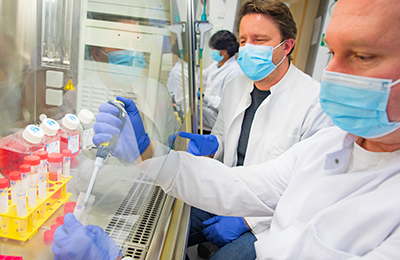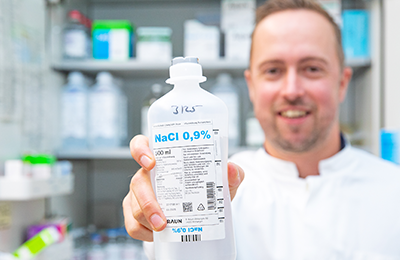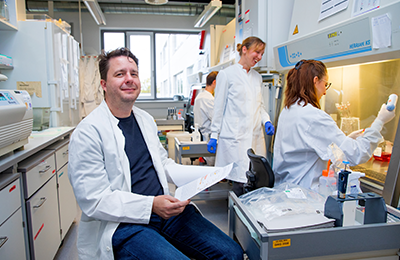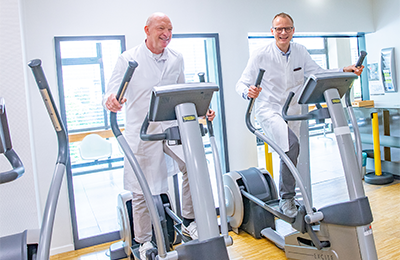More impact against cancer
Natural killer cells (NK cells) are part of the first line of defense of our immune system. They eliminate virus-infested cells and tumor cells. This makes NK cells interesting helpers in cancer therapy. Professor Dr. Dr. Axel Schambach, head of the Institute of Experimental Haematology at the Hannover Medical School (MHH), wants to genetically modify the immune cells in such a way that they detect and destroy the tumor cells even more reliably.






